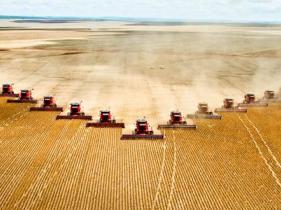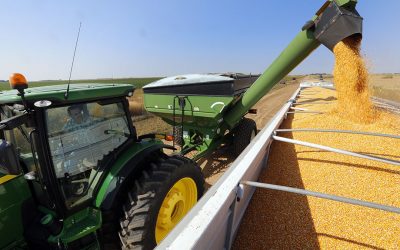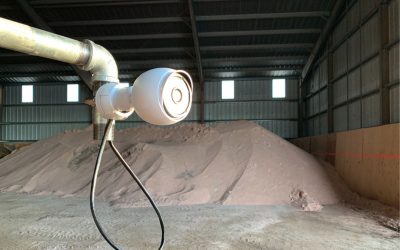Too much grain is also worrisome

Two years after the global food crisis peaked, grain shortages are turning into surpluses that could create their own problems.
Some traders and economists are speculating that if the US and world economies don’t heat up soon, surpluses could turn into price-depressing gluts.
While cheap grain is good news for consumers and livestock producers, excessive supplies increase a government’s cost for farm subsidies and tend to ignite trade fights between the big farming powers.
This tension is growing partly because many of the farmers in the US Midwest who were plagued by rainy growing seasons in recent years are having few problems so far this year.
Storage problems
Farmers in Iowa are preparing their storage bins for what’s shaping up as a record-large crop. And in some northern Texas towns, the unfolding wheat harvest is so big that farmers delivering grain to local elevators in recent weeks have had to wait all day in long lines of trucks. Some elevators are so full that wheat is being stored in cotton warehouses.
Grain traders in Chicago expect US farmers to produce record-large corn and soybean crops for the second straight year.
Farmers in Brazil and Argentina are wrapping up record-large soybean harvests. Asian farmers are poised to produce a huge rice crop.
According to forecasts by the United Nations’ Food and Agriculture Organization, this year’s global cereal reserves — the buffer against shortages — will probably be 24% bigger than just two years ago, and the largest in eight years.
Two scenarios
With world grain production this year expected to exceed demand for a third consecutive year, many grain traders and farm economists are beginning to debate the prospects for two starkly different outlooks.
One scenario pictures a slow economic recovery where price-depressing grain gluts could materialize in a few years, dragging down farmers’ profits and chilling farmers’ demand for everything from tractors to genetically modified seed.
In a second scenario worries are expressed that the world’s farmers won’t be able to keep up with demand again once the economy does recover, which would increase costs for food manufacturers and create the environment for another food crisis. China’s and India’s appetites are expected to grow strongly.











